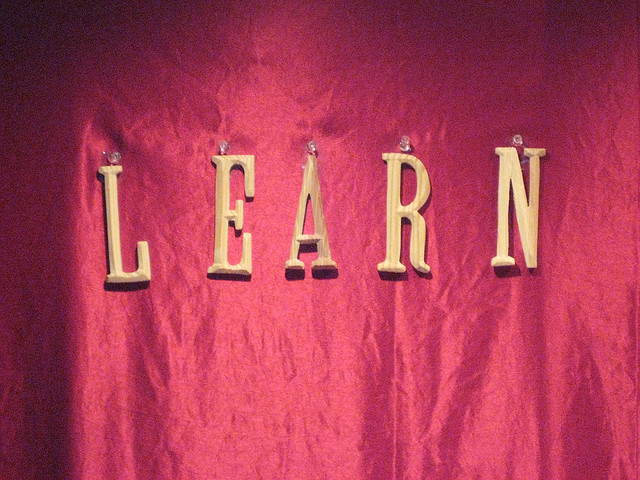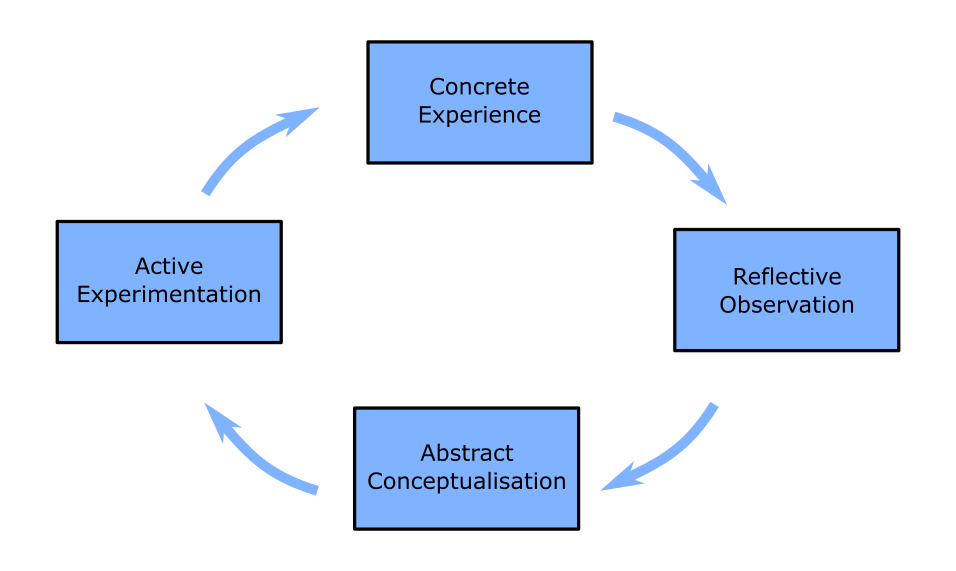Make the most of development and learning experiences with the Kolb learning cycle.
The Kolb Learning Cycle
 The Kolb Learning Cycle, developed by David Kolb is an example of a learning style, and as a technique for experiential learning.
The Kolb Learning Cycle, developed by David Kolb is an example of a learning style, and as a technique for experiential learning.
The learning cycle is particulary useful during intense periods of learning or development, such as on a training course, or when starting a new job or project.
The techniques involved in the learning cycle can also be applied equally well to other events you wish to learn from or reflect on.
Find out more about the Kolb Learning Cycle
Four Stages
The Kolb Learning Cycle is made up of four stages:

1. Concrete Experience
This is something that happens to you or you experience. This can be absolutely anything. It might be something that happens at work, or at home, or in a relationship. It might be that the experience is a simulated one or an example in a training course. The experience could be on your own, such as dealing with your boss; or a group activity, such as the ice-breaker in a team excercise.
2. Reflective Observation
Having had your concrete experience you should take time to think about the activity or event. Think about what happened – what worked? What didn’t work? What was easy? Difficult? Was anything surprising? Did things happen as expected?
In a more formal context, you might also want to think about writing a lessons learned document.
3. Abstract Conceptualisation
This stage takes the ideas in step 2 and advances them and widens their scope. Involves trying to make sense of what has happened
- in the context of your (group) experience
- historical experience e.g. how does this experience compare with how it has gone down in the past?
- theoretical frameworks e.g. how does what has happened to you fit in with text-book explanations for what should or might happen?
This stage is also an opportunity to think about the connections and relationships between your observations and experiences.
4. Active Experimentation
The final step in the learning cycle is to think about how you are going to put into practice what you learned in steps 1 to 3.
Make a plan for how you can build on what has happened. Make some predictions about what might happen next. How might your behaviour change the next time you encounter this event or experience?
The Learning Cycle
To make the most of these stages, you really should try to think of them in terms of a cycle or loop. As your experience of a event or lesson advances, you will be better able to deal with it the next time. You can incorporate your reflection and the lessons you learned into your approach to tackling problems or situations.
Further Reading
Kolb Learning Styles – businessballs.com
Interactive Flash Resource on The Kolb Learning Cycle